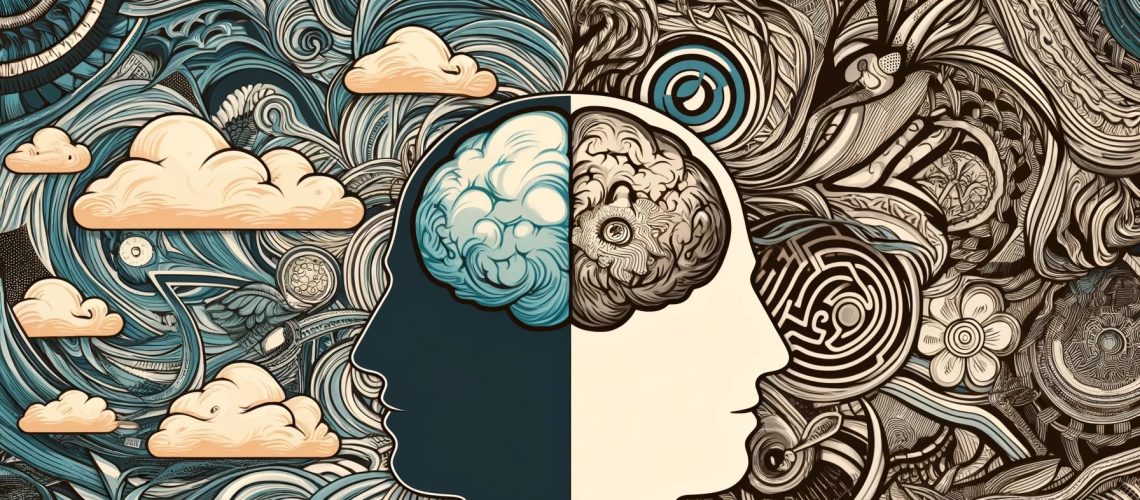While the acronyms OCD and OCPD sound like they could be members of the same exclusive club, they’re as different as night and day—or maybe as different as a never-ending maze and a meticulously aligned row of dominos. Let’s dive into the differences between these two conditions.
OCD: “but, what if…”
Obsessive-Compulsive Disorder (OCD) is a fear-driven rollercoaster that leaves its passengers gripping the safety bar with white knuckles. At its core, OCD is centered around uncertainty and anxiety, driving the need for rituals to find relief. Despite the rarity of worst-case scenarios, individuals with OCD obsess about “but, what if…” questions and this fuels compulsions and rituals.
People with OCD are bombarded by intrusive, unwanted thoughts (obsessions) that send their anxiety levels soaring. These obsessions are limitless in scope, ranging from catastrophic scenarios like “what if my house burns down?” and contamination fears such as “what if I get sick and die?” to existential worries like “what if I’m a psychopath?” For a more detailed, yet not all-encompassing, list of obsessions, click here. To alleviate this anxiety, individuals engage in repetitive behaviors or mental acts (compulsions). It’s an exhausting cycle, akin to shadows trying to outrun themselves.
Imagine this: You’re convinced that if you don’t check the lock on your front door exactly seven times before bed, something terrible will happen. No, not just a vague bad feeling, but something specific and catastrophic. Your rational brain knows this is impossible, but the fear is overwhelming. So, you check, check, and for good measure, check again.
OCD isn’t about liking things neat and orderly – it’s not an adjective. It’s about attempting to prevent disaster in a world that feels out of control. It’s like living in a horror movie where the villain is your own brain, and the only way to fend it off is by performing rituals that offer temporary relief but never a permanent solution. Unlike typical worries that make sense to the individual, these obsessions often feel foreign and illogical, clashing with one’s core values and personality (ego-dystonic). When individuals describe their symptoms, you often hear the “W” word: “weird” as those with OCD are often deeply ashamed and embarrassed about what they are experiencing.
OCPD: Perfectionism Plus
While OCD is driven by fear, Obsessive-Compulsive Personality Disorder (OCPD) is all about a need for order, control, and perfection. People with OCPD are obsessed with rules, details, and organization. They believe there’s a right way to load the dishwasher—and heaven help you if you put the forks in the wrong spot!
Think of OCPD as perfectionism plus. Everything must be just right, and any deviation from the plan is not only unwelcome but intolerable. This rigid perfectionism can make it difficult for individuals to work in teams, as they struggle to delegate tasks without micromanaging. In contrast to OCD, people with OCPD often don’t see their behavior as problematic. In fact, they might even take pride in their meticulousness and expect others to follow suit.
Recognizing the Differences
OCD and OCPD both involve some level of obsessiveness. However, the reasons are very different. OCD is a fear-based disorder, a relentless anxiety machine that demands constant vigilance and ritual. OCPD, on the other hand, is about control, perfection, and an inflexible adherence to order.
Understanding these differences is crucial, not just for those living with these conditions but also for their friends, family, and even healthcare providers. So, the next time someone casually throws out an “I’m so OCD” when they mean they are very particular about how their desk is organized, you can gently correct them.

